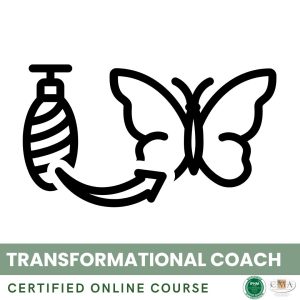Self-assertion and conflict management are key skills in coaching LGBTQ+ individuals. They allow for the development of authentic and respectful communication, defending personal needs and boundaries, while maintaining the quality of relationships. In a context where LGBTQ+ individuals often face specific challenges, such as coming out, discrimination or negotiating their visibility, these relational skills are crucial to safeguard their well-being and integrity.
Self-assertion relies on the ability to express one’s thoughts, emotions, and needs in a clear and confident manner, without aggressiveness or passivity. It’s all about finding the right balance between self-respect and respect for others, by communicating honestly and kindly. For LGBTQ+ people, this often entails overcoming fears of rejection or judgment, to dare to show themselves as they are, with their differences and singularities.
The coach can provide different exercises to develop assertiveness, such as the affirmative “I”, which consists of stating demands and feelings using the pronoun “I”, rather than impersonal or accusatory phrases. For example, instead of saying, “You never understand me,” one can express “I feel alone and I would like us to spend more time together”. Communication using “I” allows for being heard without eliciting defensive reactions from the listener.
Work on self-assertion also includes identifying and expressing emotions. LGBTQ+ individuals have often learned to hide their feelings, out of fear of rejection or stigmatization. The coach helps them recognize and validate their emotions, by providing a safe space to explore and share them. Techniques such as “feeling in three steps” (describing the situation, naming the emotion, expressing the need) can be useful in structuring this emotional communication.
Assertiveness also involves knowing how to set limits and say no when necessary. For LGBTQ+ individuals, this can involve situations such as refusing to answer intrusive questions about their private life, opposing homophobic or transphobic jokes, or not succumbing to the pressure to conform to normative expectations. The coach trains them to assert themselves calmly and firmly, based on their values and deep convictions.
Take the example of Karim, a 35-year-old cisgender gay man, who struggles to assert his homosexuality at work. When his colleagues make inappropriate comments about LGBT+ people, he tends to give a forced smile and ignore it, fearing that it might cause trouble. With his coach, he learns to express his discomfort assertively, saying, for example: “I am gay and I find these jokes hurtful. I would appreciate if we could avoid such remarks”. By affirming himself in this way, he sets a clear boundary while promoting respectful dialogue.
Conflict management complements self-assertion. It aims to prevent and resolve relational tension by finding mutually satisfying solutions. For LGBTQ+ people, conflicts can arise in various contexts, such as family disagreements after a coming-out, relationship negotiations around parenthood plans, or discrimination experienced in a professional setting.
The coach helps to understand conflict as an opportunity for dialogue and mutual understanding, rather than as a threat or failure. They encourage a cooperative approach, based on active listening, empathy, and seeking compromise. Techniques such as the DESC method (Describe the facts, Express emotions, Suggest solutions, Conclude positively) can be useful in structuring constructive communication in a disagreement situation.
The management of emotions is a crucial aspect of conflict resolution. Anger, fear or sadness can quickly escalate and block dialogue. The coach teaches how to welcome and regulate these emotions, using techniques such as breathing, visualization or mindfulness. They also assist in identifying the fundamental needs underlying these emotional reactions, in order to better accommodate them when seeking solutions.
Let’s return to the example of Sophie, a 30-year-old cisgender lesbian woman, who is experiencing difficulties with her partner regarding their childbearing project. While Sophie wishes to bear their baby, her partner is insisting on surrogacy, which creates severe tension in their relationship. With the help of her coach, Sophie learns to express her perspective and fears calmly while listening empathically to her partner’s aspirations. By exploring their deep needs (motherhood, transmission, equality), they manage to envision an alternative scenario, such as co-parenting adoption, which respects their respective desires.
Self-assertion and conflict management are skills that develop throughout life, through experiences and awareness. The coach supports this process by offering a compassionate space to experiment with new relational modes, by encouraging progress, and by helping to draw lessons from the difficulties encountered. They ensure that this work is integrated into a comprehensive approach, considering the specificities and resources of each individual.
For LGBTQ+ individuals, who often face unique relational challenges, this approach is particularly significant. It supports the development of strong self-esteem and the ability to create authentic and nourishing connections while remaining true to their identity. By learning to confidently assert themselves and manage conflicts constructively, the quality of life and fulfillment of LGBTQ+ individuals are greatly enriched.
Key points:
– Self-assertion and conflict management are vital skills for LGBTQ+ individuals, enabling them to communicate authentically, defend their needs, and safeguard their well-being in the face of specific challenges.
– Self-assertion is about expressing thoughts, emotions, and needs clearly and without aggression, finding a balance between self-respect and respect for others. The coach offers exercises such as the affirmative “I” to develop assertiveness.
– Recognizing and validating one’s emotions is crucial in self-assertion work. The coach provides a safe space to explore and share these feelings.
– Knowing how to set limits and say no is an important aspect of assertiveness. The coach assists in assertively doing so, relying on personal values.
– Conflict management aims to prevent and resolve tensions, finding satisfying solutions for all. The coach encourages a cooperative approach based on listening, empathy, and compromise.
– Regulating emotions and identifying underlying needs is essential in conflict resolution. The coach offers techniques to soothe emotional reactions.
– Self-assertion and conflict management develop throughout life experiences. The coach supports this process by providing a kind space to experiment with new relational modes.
– For LGBTQ+ individuals, this work fosters solid self-esteem, authentic connections, and overall fulfillment, remaining true to their identity.
👉 To download docx (Editable) file click here : Click here
👉 To download PDF file click here : Click here
👉 To download MP3 file click here : Click here











